The eCommerce market is growing and changing day by day. With more consumers now preferring to go online to purchase some stuff you need, it’s imperative to leverage the ideal platform for eCommerce site development.
As per the Nasdaq, from 2040, ninety-five percent of the buys would be made online. Now, that is a huge amount to consider!
This means there are a ton of opportunities in modern digital commerce, and you should make the best out of all to skyrocket your business.
If you’re an enterprise finding the ideal eCommerce platform, or your squad is on the search for the ideal eCommerce platform for tiny businesses, you’ve landed at the correct place, mate.
Among a large pool of alternatives (many of which are ridiculous, and make you spend high), we’ve come up with an insightful list of the top ten eCommerce platforms which are trending in the current market and have great future potential.
Let’s get began and see which solution among these is the ideal eCommerce platform.
SPECIAL NOTE: If you’re in a money-conservation mode, our experts are highly specialized in designing custom websites that are identical to what you get with several huge platforms. No matter what your requirements are, if you want to build an eCommerce base, just let us know, and that’s actually enough! We can deliver a thousand times better product at truly low rates, and keep in mind, when it comes to an eCommerce website, consolidating the platform is very important.
What do you need to design the e-commerce dreams?
Country retail operations and hobby side-projects, it doesn’t matter which kind of eCommerce site you plan to develop. The first thing you require is an eCommerce platform, so it can help you develop the ideal eCommerce store.
An eCommerce platform is a solution application that lets you set up a store and manage its sales, marketing, and operations. There are three core sorts of eCommerce platforms on the current market:
- SaaS.
- Open source.
- Headless commerce.
Each platform offers you a toolkit for making an online store: checkout page, page builder, payment gateway integrations, and much more. The difference in those eCommerce platforms lies in the segments of:
- Performance.
- Customization.
- In-built feature set.
SaaS platforms provide an out-of-the-box eCommerce store experience. You could develop a store utilizing a drag-and-drop visual builder in some hours. However, the tradeoff is customization and the incapacity to include custom functionalities.
Open source platforms seem like a blank canvas that, with enough time and effort, could be turned inside any sort of eCommerce site. However, you’re making everything from scratch, which means a designer on call and heaving a coder.
You could select between any type of headless commerce and SaaS platforms such as Shopify (which does have a commerce offering, however, has rigid API call per second), Open SaaS platforms like BigCommerce, SaaS site designer like Wix and Squarespace, and open-source platforms such as Magento (does not have a theme editor) and WooCommerce (which is an eCommerce plugin).
Like eCommerce solutions, do not limit your developing abilities so that you could make unique and beautiful sites. And you are not required to develop core commerce functionality.
Magento: Best eCommerce website builder #1
It will blow your mind that Magento is taking over eCommerce development, making out the best eCommerce platform for site development. According to the latest statistics, Magento accounts for twelve percent of all eCommerce websites and powers more than 1.2% of the worldwide internet.
Fascinating enough, Magento is the should-have platform of some merchants for their eCommerce procedure. Are you wondering what offers Magento a competitive benefit over other famous eCommerce platforms?
It is the endless success opportunities in business! On average, sellers leveraging Magento see the success rate of the online store raised by three times.
- Quick Deployment
- Open Source Platform
- SEO Friendly
- Intuitive User Interface (UI)
- Responsive Themes
- Multi-channel to increase cross-selling
- Simplified Content Management System
- Elasticsearch to optimize searches
- Seamless Third-party Integrations
- Resourceful Online Community
- Personalized Customer Experience
It’s essential for the eCommerce platform to mirror the business requirements. With Magento, you have got the ease to customize and flexibility of your online store in accordance with your brand at a quick pace.
Leverage these Magento modifications to make it pretty easy for the consumers to discover what they’re looking for and take the business to another level. Connect with your consumers quickly by creating a user-friendly store. With Magento theme personalization, you could make a consistent branding of the online store across every platform.
Furthermore, it would make it responsive, so it will work well with every web browser. To make sure that the operational effectiveness of the online store isn’t limited, you could leverage MCM (Magento Custom Module) development. This would help you in seamlessly blending your business functionalities.
How much does Magento cost?
Average Order Value (AOV) and Gross Merchandise Value (GMV) are the two factors affecting the price of your Magento website. You can tap Accuwebtech to get your first quote. most importantly, AccuwebTech’s experts can bring you much sturdy solution at much lower cost than others.
Shopify: Best eCommerce website builder #2
- 70+ themes
- Price starts at $29/mo
- 24/7 customer support
- Built-in payments gateway
Shopify is the most famous eCommerce platform in existence today. More than 1 million online stores are getting established by Shopify. They keep growing as well—and for great reason.
On top of that, Shopify is the powerful eCommerce site developer platform on the market today. This web-based content management system includes everything you require to set up and can manage the online store. To get began, select from one of 70+ free and premium themes of Shopify.
Every theme has a configuration that permits you to personalize all things according to your needs. Add extraordinary functionality and additional features to your online store by integrating apps from the Shopify Store. One of the ideal segments about utilizing Shopify is that payments are managed directly from the platform.
Using the Shopify Payments gateway pre-installed to your plan, you will not require to connect any 3rd party processors to receive payments. Thus, you could begin selling quickly. With that said, you could always utilize another payment gateway by selecting from one of the over a hundred payment processors which integrate with Shopify.
Every plan comes with web hosting, unlimited bandwidth, unlimited email forwarding, and a CDN (content delivery network) for optimal performance. You will benefit from SEO and marketing tools, analytics, and mobile optimization. Shopify provides 24/7 customer support from email, phone, and live chat.
With Shopify, you have got the potential to set up customer accounts, dropshipping, target abandoned carts, manage your shipping costs, and POS software. There is an extensive Shopify App platform to include any feature that you desire.
How much does Shopify cost?
Here is an overview of plans and prices of Shopify:
- Shopify — $79 per month
- Basic Shopify — $29 per month
- Advanced Shopify — $299 per month
Consult with a Shopify expert if you are developing a high-volume eCommerce shop and require an enterprise-level solution. You could try Shopify free for fourteen days.
Wix: Best eCommerce website builder #3
Some great features Wix’s eCommerce plan provides:
- SEO tools
- 500+ templates
- Mobile optimization
- Multiple payment methods
- Wix chat
- Coupons and discounts
- Global shipping
- 100% commission free
Wix is the ideal ecommerce site builder Period.
Suppose you are creating a new eCommerce website without any kind of experience; the simplicity of Wix would make your life easier. Its highly versatile platform is tailor-made for anyone with no website development experience. It is jam-packed with functionalities to help you increase your website and produce leads.
Your Wix site would be SEO-friendly and entirely customizable with the help of its drag-and-drop builder. Besides that, Wix has particular plans made for eCommerce sites. Every eCommerce solution has unlimited bandwidth, a free domain for one year, $300 in advertising vouchers plus visitor analytics.
It is worth noting that all payments from the Wix store are a hundred percent commission-free. This is a BIG advantage. Many eCommerce frameworks take a percentage of all sales. It is an additional tax on the entire business. You will save hundreds (or maybe thousands) of cash per year by choosing Wix for this reason.
The store manager makes it pretty easy for you to track any orders, your product pages, and inventory. You will be capable of adding a blog and designing your logo without any 3rd party integrations. All required SEO tools are a big standout.
They permit you to optimize the website for mobile by making an automatic mobile-friendly build of your site as you modify it. They get your website listed on Google within a minute.
AppMarket of Wix is a further bonus. It offers a ton of excellent applications from services like Quickbooks, MailChimp, and HubSpot to seamlessly implement into your site. That way, you could take advantage of their amazing offerings!
How much does Wix cost?
These are the rate points for Wix solutions:
- Business Unlimited — $27/month
- Business Basic — $23/month
- Enterprise — $500/month
- Business VIP — $49/month
Wix has cheaper plans as well; however, they are for portfolios or personal websites. However, if you wanna accept online payments, then Business Basic is the cheapest plan available that will work for your requirements. To save some cash, you can always sign up for the Wix plan, which is an entry-level without the capability of accepting online payments.
You could develop a personal site with Wix for $14/month and then upgrade it to an eCommerce plan once you are ready to begin selling. If you are not happy with Wix, you could always cancel within fourteen days to get an entire refund. Try Wix for fourteen days free.
Squarespace: Best eCommerce website builder #4
- Beautiful designs
- Price starts at $12 per month
- Sell products, subscriptions, and digital goods
- Drag and drop site builder
Squarespace is one of the great popular ecommerce site platforms in the globe. There is a great reason for that. They provide eCommerce functionality developed directly into its plans; that isn’t the case for traditional website platforms. Maybe the reason almost all people love them, though, beautiful, award-winning designs of the template.
No worries if you’re a seasoned pro who likes to jump in and make a website to exact design specifications or if you are a complete newbie who just desires an incredible-looking site right out of the box. Everyone could develop a visually appealing and modern eCommerce store utilizing Squarespace.
All elements of your pages could easily be modified utilizing the highly responsive and intuitive drag-and-drop builder of the Squarespace.
Squarespace has impressive award-winning templates which are particularly designed for online stores. Whether you are selling services, subscriptions, products, or any digital goods, it has a solution for the requirements. The Squarespace mobile application permits you to handle and modify your site on the go.
You could also utilize it as a POS solution if you’ve physical locations. Besides that, Squarespace has pre-built SEO tools, analytics, blogging tools, and everything else you would need to make the online store a huge success. There are thousands of applications built-in to Squarespace. But, there isn’t an app marketplace or store for one-click installations.
So, when you wanna install any third-party application that is not already built-in inside Squarespace, you will need to utilize a code injection.
How much does Squarespace cost?
Squarespace has 4 unique plans, 3 of which have fully-integrated ecommerce abilities:
- Business — $18/month
- Personal — $12/month
- Advanced Commerce — $40/month
- Basic Commerce — $26/month
Online selling begins with the Business plan. We would suggest the Basic Commerce plan as the bare minimum for all of you. This option has no transaction fees at all, eCommerce analytics, POS, customer accounts, and many other features you will want at your disposal once you begin selling online.
It is well worth the additional $8/month. As the business scales and you wanna have more advanced functionalities, you could always upgrade to the Advanced plan.
But you might not require that on day one if you are beginning a new store from scratch. every single plan provides with 24/7 customer support. On top of that, you could try Squarespace for free with a fourteen-day trial.
Zyro: Best eCommerce website builder #5
- Easy user interface
- Price starts at $1.70 per month
- Tons of payment options
- Drag-and-drop site builder
Zyro provides a beginner-friendly experience. Not only is the UI perfectly suited for beginners, but it also comes at highly affordable rates. Utilizing drag-and-drop tools, you will be capable of laying out absolutely how you want your site to appear and see it change in time. In fact, you will be capable of setting your site up and running very fast.
You will be capable of promoting and selling your products across sites like Facebook, Instagram, and Amazon. They provide a lot of different modifiable themes across 9 categories—so you could pick the ideal one for your business.
Another thing that helps set Zyro aside from the competition is its powerful Artificial intelligence business tools. These highly insightful tools leverage machine learning and AI to help you make your brand identity utilizing:
- Slogan generator
- Business name generator
- Logo maker
- AI heatmap
- AI content generator
The AI content generator would furnish SEO-friendly content for the website. That is ideal for those who’re new at writing copy for anyone who may be a bit nervous about their word selections.
How much does Zyro cost?
Their plans and prices are as follows:
- Unleashed —$1.79 per month
- Basic — $1.30 per month
- Ecommerce+ —$13.99 per month
- eCommerce — $8.99 per month
As you could see, even the expensive plan is pretty affordable. If you wanna reap the most out of the eCommerce experience using Zyro, though, we highly recommend you go with the Ecommerce option at least.
That will offer you unlimited bandwidth and storage, along with a free domain, the capability of accepting online payments, as well as their line of eCommerce features. Get began at Zyro.
BigCommerce: Best eCommerce website builder #6
- B2B selling tools
- Price starts at $29.95 per month
- Move your goods across any channel
- Loaded with pre-built features
BigCommerce is a trustworthy and reputable eCommerce website builder. It is highly versatile as well. It has B2B-specific functionalities like bulk pricing, customer groups, quote management, and custom price lists. On top of that, BigCommerce specializes in multi-channel selling.
All plans come with the capability of selling on Instagram, Facebook, Google Shopping, Pinterest, eBay, POS, and Amazon. So for those of you who wanna leverage omnichannel sales, BigCommerce must be at the top of the list.
The site builder itself is intuitive and comes with a drag-and-drop tool which makes creating the site easy. BigCommerce is also packed with tons of important features right out of the box.
Compared to any other platforms on this list, it is the most expanding feature list that you will find. That said, newbies may be wary of BigCommerce. That is due to the additional features that tend to make things pretty much complex. The platform is developed to help bigger eCommerce websites scale fastly.
So, if you are new, you will most likely be paying additional for functionalities that you will not be utilizing. However, suppose you want the capability of having tons of eCommerce and site customization functionalities at your disposal without paying additional for extensions or apps, BigCommerce will be ideal for you.
All BigCommerce sites benefit from enterprise-level security and uptime rates. You will get 24/7 support via live chat, phone, and email.
How much does BigCommerce cost?
the price and plans for BigCommerce:
- Standard – $29.95/month
- Plus – $79.95/month
- Pro – $249.95/month
These prices are identical to Shopify. While Shopify is a little bit easier to utilize, BigCommerce comes loaded with more functionalities. So if you are deciding between those 2 options, you’ll require to determine which functionalities are the most essential to you. You can try BigCommerce free with a fifteen-day trial before you choose a plan.
Square Online: Best eCommerce website builder #7
- SEO tools
- Price starts at $0
- Flexible customer connections
- Great integrations
Square is widely known for its point-of-sale applications (which is ideal, by the way). But, they have a great website builder which comes packed with functionalities for free. It’s especially ideal when you already use Square for your POS system. The website would be able to seamlessly implement with Square POS.
You will be able to accept all main credit cards, sync with existing Square POS, as well streamline inventory management. That is why we recommend both of their services for mortar-and-brick stores that will like an eCommerce site that seamlessly implements their current POS system.
By utilizing both website builder and Square POS, you’ll be able to sync your inventory to see your real-time stock. Besides that, this helps prevent overselling—and also keeps your consumer happy.
You will also be making a centralized database for the sales. No longer will you’ve to manually input sales for the day or month into a separate database because it’s all one system.
With analytics and reporting tools, you will be able to take a deeper look at the metrics behind sales and enhance them. Square is flexible in how you will connect with consumers, too, permitting you to sell through Instagram, Facebook on your site, or local delivery and pickup. Setting up the site is a snap too.
No need to know a lot of code or hire a developer. All you require is a mobile or computer device, and you could get started. Square gives you SEO tools to help the website reach more potential consumers.
How much does square online cost?
Rates start free with 2.9% + 30 cents/transaction. Pricing is as follows:
- Performance: $26 / month (2.9% + 30 cents per transaction)
- Premium: $72 / month (2.6% + 30 cents per transaction)
- Professional: $12 / month (2.9% + 30 cents per transaction)
- Free: $0 / month (2.9% + 30 cents per transaction)
Try the Square Online for free.
Weebly: Best eCommerce website builder #8
- Drag and drop site builder
- Price starts at $12 per month
- Integrates with Square, PayPal, and Stripe
- Add product search to your store
Weebly is a well-known website builder which provides a free forever plan. In fact, this plan created our list of the best free website builder platforms on the market today. Probably, the free plan does not include eCommerce capabilities.
However, you could still utilize it to test out the Weebly before you upgrade to a premium subscription. Their eCommerce plans are still some of the cheapest-priced ones out there.
That makes Weebly the most affordable choice you could look at. You could accept payments with famous gateways like Stripe, PayPal, and Square.
Weebly makes it pretty easy for entrepreneurs to make an online presence and extend with eCommerce. So, when you already have a tiny or local business, we would recommend Weebly as the ideal solution for you. Weebly is powered by Square; it is very easy to implement the Square POS with an online sales system as well.
You will be capable of managing your inventory and products all in one place. The drag and drop website builder permits you to launch the store with pretty little effort and no coding. You will get tools for SEO, email, site stats, inventory, shipping, and more.
Help your consumers find what they are looking for by including Weebly’s product search to the online store. Add badges to items when products go on sale or when availability is limited.
How much does Weebly cost?
These are prices of Weebly for online stores:
- Business — $25 per month
- Pro — $12 per month
- Business Plus — $38 per month
The Pro plan is quite basic. However, it’s affordable if you do not need any complex eCommerce functionalities. It’s important to just a shopping cart with the capability of accepting payments. Wanna reap most out of Weebly? You will need a Business plan. Try out Weebly’s forever-free plan and use it as a free trial before you launch your online store.
BigCartel: Best eCommerce website builder #9
- Great for creators and artists
- Price starts at $0
- Cheap paid plans above free
- Good for limited product lines
Big Cartel is a fabulous eCommerce site builder for artists. In fact, they have tailor-made and targeted their site builder for makers and creators of all stripes.
No worries if you are looking to launch your first streetwear line or you wanna sell your art prints; Big Cartel provides an excellent site builder for artists developed by pro artists. Just take a look at some funky and creative sites their consumers have made.
How much does BigCartel cost?
They are especially good for those makers who’ve limited offerings. Their free plan permits you to see just five products. That is not a lot (obviously); however, it can be a lucrative option if you just have some prints or shirts you wanna sell.
A step up, you could sell up to fifty products for just $10 per month. The most expensive option is rated at a point identical to entry-level plans of any other platforms on our list. The lowest BigCartel plan comes with features like:
- Real-time stats
- Free themes
- Bulk editing
- Automatic tax calculations
- Shipment tracking
- Inventory tracking
- Discounts and promos
But every plan is limited to just 5 images per product. “limited” seems to be the ideal word to define Big Cartel. We’d only suggest this in case you are selling a handful of products and do not need advanced eCommerce functionalities.
But if you wanna sell fifteen different shirts for as low as possible, BigCartel could be taken into consideration. Get rid of your Etsy store and strike out on your own by getting started with BigCartel today.
Shift4Shop: Best eCommerce website builder #10
- 200+ built-in features
- Free enterprise-level online store
- Powerful yet easy to use
- No long-term contracts
Shift4Shop (aka 3DCart) is certainly not the popular eCommerce website builder on the current market—however, that does not mean you must sleep on it. In fact, they provide an enterprise-grade plan for definitely free. We know what you are thinking, “If it is free, they should skimp on the functionalities.”
Nope.
They come with all the tools and features you expect from an enterprise-level website builder, including unlimited users, products, and bandwidth, with SEO marketing tools and more than a hundred themes to select from. The catch: You have to utilize the Shift4 payment platform (thus the new name).
You have to be based in the U.S. to take advantage of their plan. Currently, Shift4’s transaction fees are 2.9% + $0.30 per transaction. That is considered the industry standard in eCommerce businesses, which makes it a fabulous deal for you. This can be especially ideal for seasonal business.
That way, you do not have to be on the hook for a monthly website fee during any lean months since you have to pay the payment processing charges when you make transactions. Shift4Shop comes with benefits and features like:
- Unlimited products
- API access
- Mobile-ready themes
- Unlimited bandwidth
- Web hosting
- Built-in blog
- No transaction fees
Obviously, the huge appeal regarding rate is the completely free eCommerce platform at the price of utilizing Shift4. However, if you have got a unique payment processor very dear and near to your heart, or you are unconvinced about switching to Shift4 because of accepting payments, then Shift4Shop offers traditional rating tiers with monthly charges.
How much does Shift4Shop cost?
- Pro Store — $229/month
- Plus Store — $79/month
- Basic Store — $29/month
Either way, you are getting a robust eCommerce site platform and builder. You can start with Shift4Shop for free today.
Design Differences Between B2C and B2B Ecommerce Sites
To develop a high-performing site, you need to understand who your target audience is and what is the best way to reach it. Both Business-to-Consumer (B2C) and Business-to-Business (B2B) eCommerce sites have the identical agenda — make a sale. However, the means towards that goal are different.
- For B2B companies, the priority is lead production. With a niche market and longer buying cycles, B2B brands are required to keep a steady pipeline of any warm leads.
- For B2C companies, brand awareness is the first priority. A recognizable brand (much important when deciding your domain name) with a robust online presence = a higher share of the addressable market.
Let’s take a look at design-wise.
1) Customer intent
Both Business-to-Consumer and Business-to-Business buys are sparked by a requirement. However, the underlying motivations behind those requirements are unique.
B2B consumer intent is driven by business priorities and backed by a group of people (teams, stakeholders, end-users, company’s customers). With a lot of people to please, the product research duration is longer, and the collection of requirements for evaluating products is more detailed. That’s why B2B eCommerce websites dwell more on converting top-of-the-funnel (TOFU) and middle-of-the-funnel (MOFU) visitors to prospects and then converting them into consumers using a mix of online (eBooks, email marketing, online demos, social media) and offline sales (in-person demos, phone consultations, etc.) strategies.
B2C shoppers act on a quick need. While most shop around, comparing product prices and specs, their average time spent at each stage of the sales life-cycle is shorter. Unlike B2B purchasers who allocate more time to data-based product consideration and evaluation, B2C users often act on impulse and hence are more receptive to some cognitive triggers.
2) Purchase process
More people are included in the B2B purchasing process, including both the purchasing decision-makers/agents and end-users. An eCommerce site is a facilitating tool that has to support, inform, and demonstrate how your items could meet all the organization’s requirements through interactive on-site tools, content, and supporting marketing assets. Keep this in mind: your goal is to produce leads, not to find a way for a quick sale.
In the B2C space, buying decisions are frequently event-driven and emotional. Was the coffee machine broken? Okay, we need a new one. Oh, that shoe looks great. Where can we purchase one too? Most B2C customers are in a constant state of trying new products and in-the-background evaluation. If they discover a great offer, they’re almost ready to grab it. In that sense, B2C websites require to facilitate discovery and feed in that sense of urgency as well.
3) User experience
User experience is equally essential for B2C and B2B shoppers. However, it has to account for the earlier mentioned differences in intent and buying process. Nielsen group identifies 5 essential differences in UX needs for B2C and B2B websites:
- All B2B content has to engage with two types of audiences — end-users and “choosers” (decision-makers).
- B2B design should accommodate longer content to support the sales process and long decision-making.
- B2B product information requires it to be longer, extensively comprehensive and involves a clear overview of capabilities, integrations, and regulatory needs.
- Just as B2C stores, B2B sites cater to some consumer segments, differing in size, operational budgets, and industry. Hence, B2B sites need to develop a more diverse, user-based navigation to cater to every target.
- Both B2C and B2B consumers are price-conscious. However, B2B rating scenarios are more complicated. Offer B2B buyers with different rating ranges variations, calculators to facilitate decision-making or pay-per-usage scenarios.
How to Find the Best eCommerce Website Builder For You
We experts at AccuWebTech have tested every eCommerce platform mentioned above utilizing rigorous criteria, permitting us to discover the weaknesses and strengths of each one, with what makes them come out from one another.
You could utilize the identical methodology we utilized for your own decision-making process. However, ultimately, this is gonna be unique to you. The humble online store selling cottage products is gonna need some different things than the 7 figure dropshipping company.
But, we have found that these elements are most essential when considering any platform:
Depth of Customization
Our developers have found that users tend to be updated with advanced and modern technologies, so we wanted to ensure that those who want to modify their website more can do so. At AccuwebTech, there are a lot of The Builders on this list that come with a ton of features and tools to help make your site more customizable.
For instance, Shopify has a lot of different integrations and plugins—like Facebook and Google integrations, live chatbots, email marketing tools, and more—to develop the correct website for your online business, feel free to learn more, just contact our expert on this matter.
Those social media integrations could be especially helpful when you plan on having an omnichannel eCommerce business; our developers are experienced with these kinds of integrations, so don’t worry; we have got it all covered for you.
If that’s something you’re interested in, then you’ll wanna definitely take a look at platforms like Shopify and BigCommerce. Every BigCommerce plan, for example, comes with the ability to sell on Facebook, Instagram, Pinterest, Amazon, eBay, Google Shopping, and much more.
If you’ve got a warehouse with inventory, then look for easy implementations with your warehouse system and shipping/logistics systems. Once again, BigCommerce is a great option for that.
One more area that these platforms could offer customization is by SEO tools. Some providings like Shopify, Wix, and Weebly help you develop Google-friendly pages and articles with recommendations as you personalize your website.
Frequently these tools are alternative and come in the form of dashboard features or plugins. Overall, they could be incredibly helpful when you plan on utilizing SEO marketing as a part of your business growth strategy.
The templates provided by these sites provide varying levels of personalizations too.
Easy to Use (Without Sacrificing Quality)
If you are creating your first eCommerce site, you likely have a bit to no experience developing websites. However, without knowledge of web design or code, making a site could be stressful and frustrating.
That is why you wanna find a platform that makes creating a dashing yet powerful website easy.
Not only does this mean you could launch more fastly. However, it saves you cash and time you instead would have spent doing it by yourself or on a web developer (who could sometimes cost you more than $10,000).
Even if you’ve more complicated needs like bigger product inventories or multiple digital storefronts, you want a website builder that is easy to utilize with a basic learning curve.
Good website platforms make the process common for you in various different ways. For instance, Wix utilizes powerful AI technology to help you make a website from scratch once you answer some quick questions. In case you’re searching for the easiest option, you should go with Wix.
Some of the websites, such as Zyro and Squarespace, utilize drag-and-drop technology so you could easily personalize your website. This offers you more freedom over how your site looks without having to know how to write code.
When you’ve more complicated needs (however still wanna benefit from an easy-to-understand-with-no-computer-degree-required type of builder), go for a platform such as BigCommerce. It is packed with features, like customer groups and bulk pricing rates, to help bigger eCommerce businesses grow instantly.
3DCart is an extra option, one that provides functionalities like API access to let seasoned eCommerce store builders have more control over their website.
Quality and Variety of Templates
Most of the website builders on this list come with various different templates for you to easily make an ideal website for your online business. When reviewing all templates for every builder on this list, we looked at 2 particular areas:
- Variety: While the templates required to look good, it is also required to be a healthy variety to select from as well. This helps make sure that the eCommerce site builder could be a good fit for your particular brand and look and not look similar to others.
- Quality: We wanted to see if the templates provided were visually appealing and eye-catching. We believe it is better to provide a dozen really dashing templates over hundred “meh” templates.
The templates provided by every platform vary—sometimes drastically—from one another.
For instance, Squarespace puts a ton of emphasis on visuals—vibrant and splashy photos, gorgeous design, beautiful art, and so on. If your eCommerce site has a ton of products that could create strong images (e.g., art businesses and photography), Squarespace is a no-brainer.
When you are looking for an eCommerce website that depends heavily on a blog for content marketing, we highly recommend something like Wix. They provide 500+ templates, including a blog with an eCommerce component. They easily provide the most options for good templates on this list.
It’s absolutely worth mentioning that Weebly is another platform that’s incredibly versatile, permitting you to do a ton of unique things with your website.
If you wanna run just a pure eCommerce website and really home in on that, then Shopify, BigCommerce, Zyro, and Square are platforms we highly recommend. Their templates really let you enhance sales and make the best website for your particular products.
The Conclusion
Building an eCommerce store that can’t just attract buyers but convert them as well, providing them full facility is actually impossible without the right developer’s support.
You can fully trust Accuweb Tech’s developers’ pool, where you can hire a developer as per your needs, and you’ll never feel like your pocket is harmed anyway.
We understand that setting up an eCommerce store will make you shed a lot of money, and we don’t want to add to that financial burden. Our success like in your success, and walking on that path, we propose you contact our expert team, share your requirements with us, and we’re sure that you’ll always feel proud of your decision!

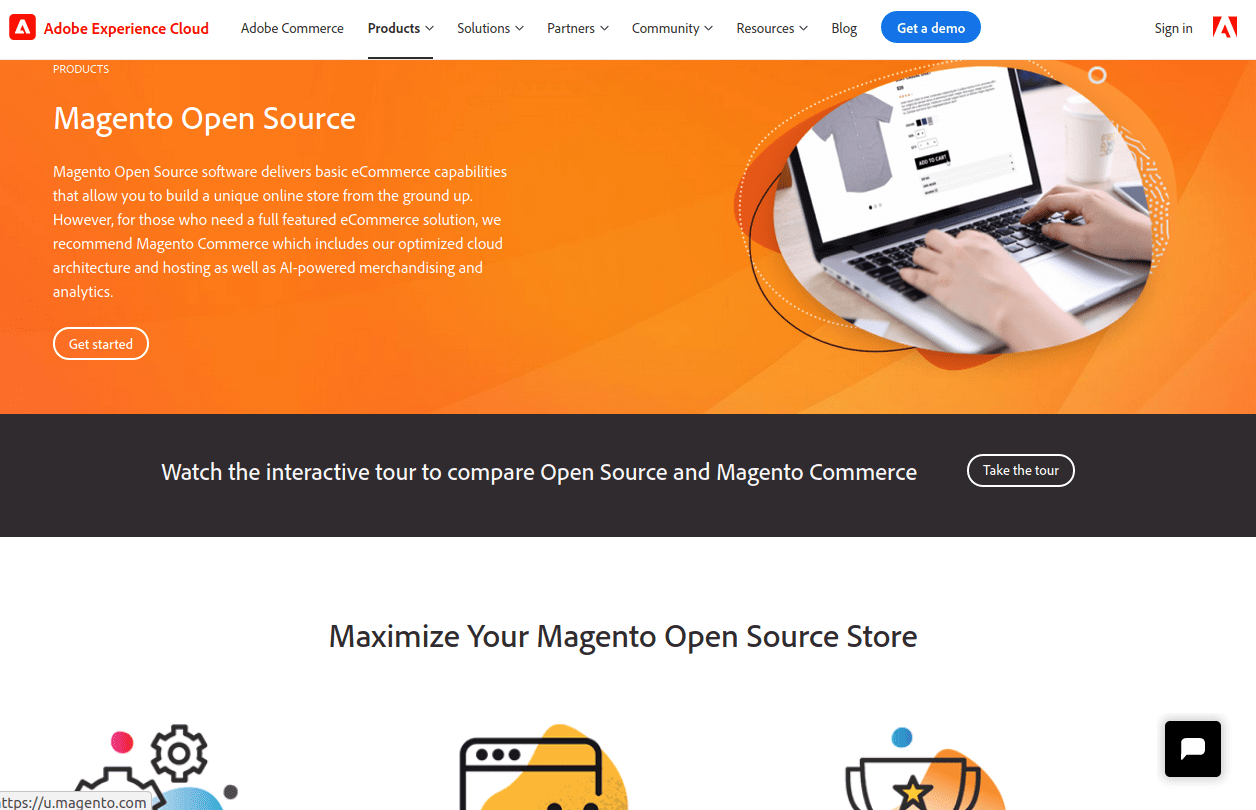
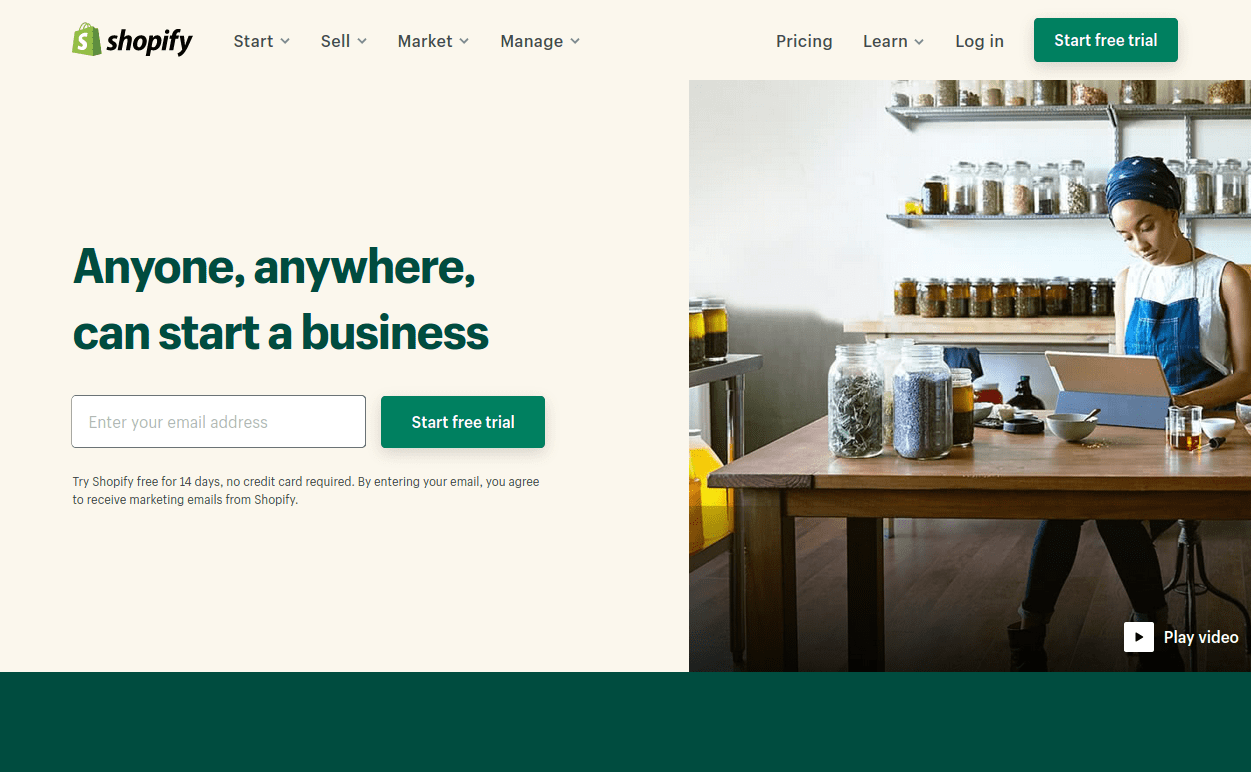
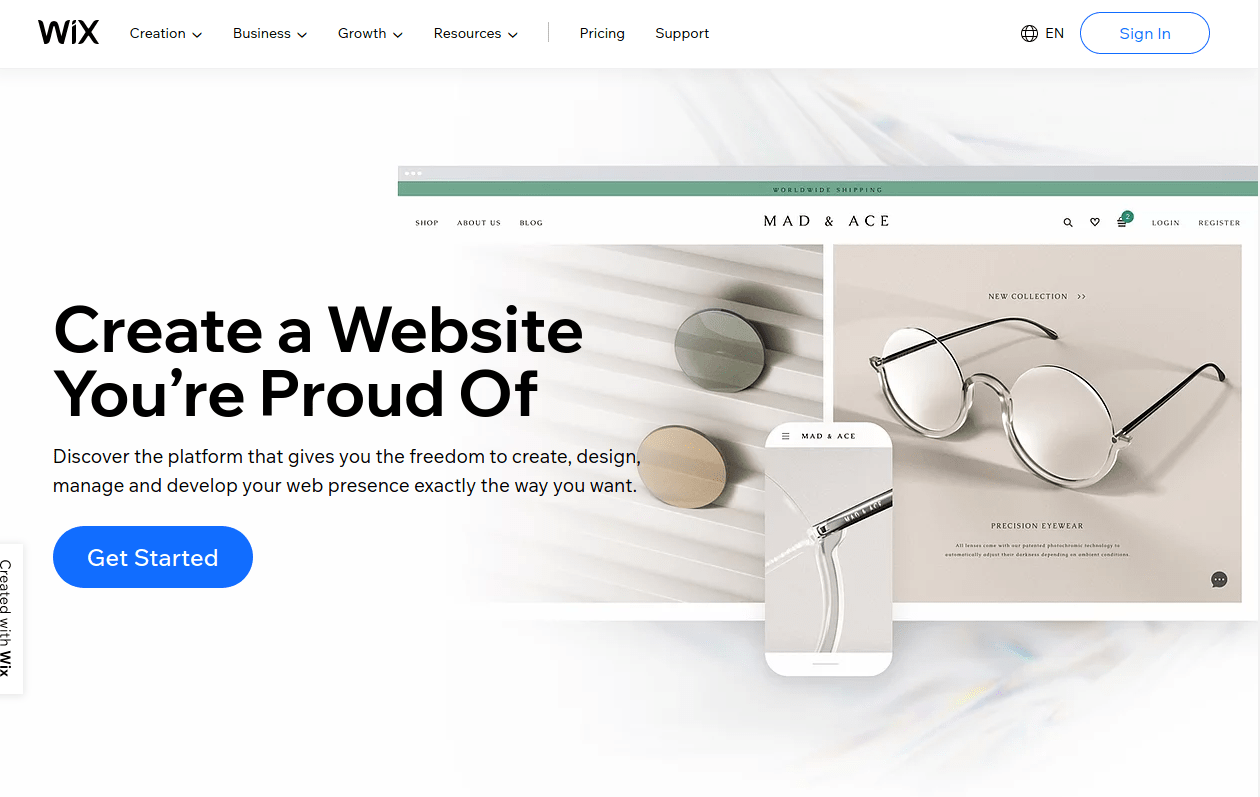
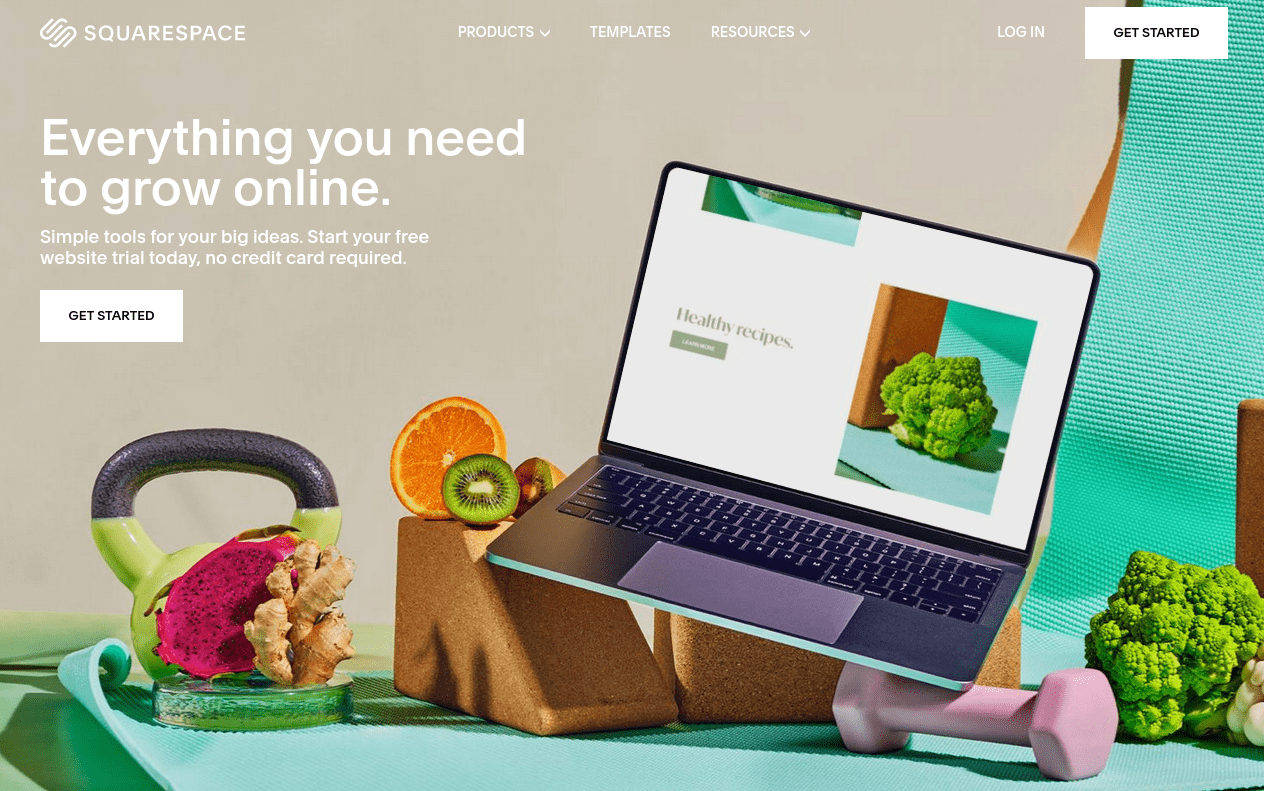
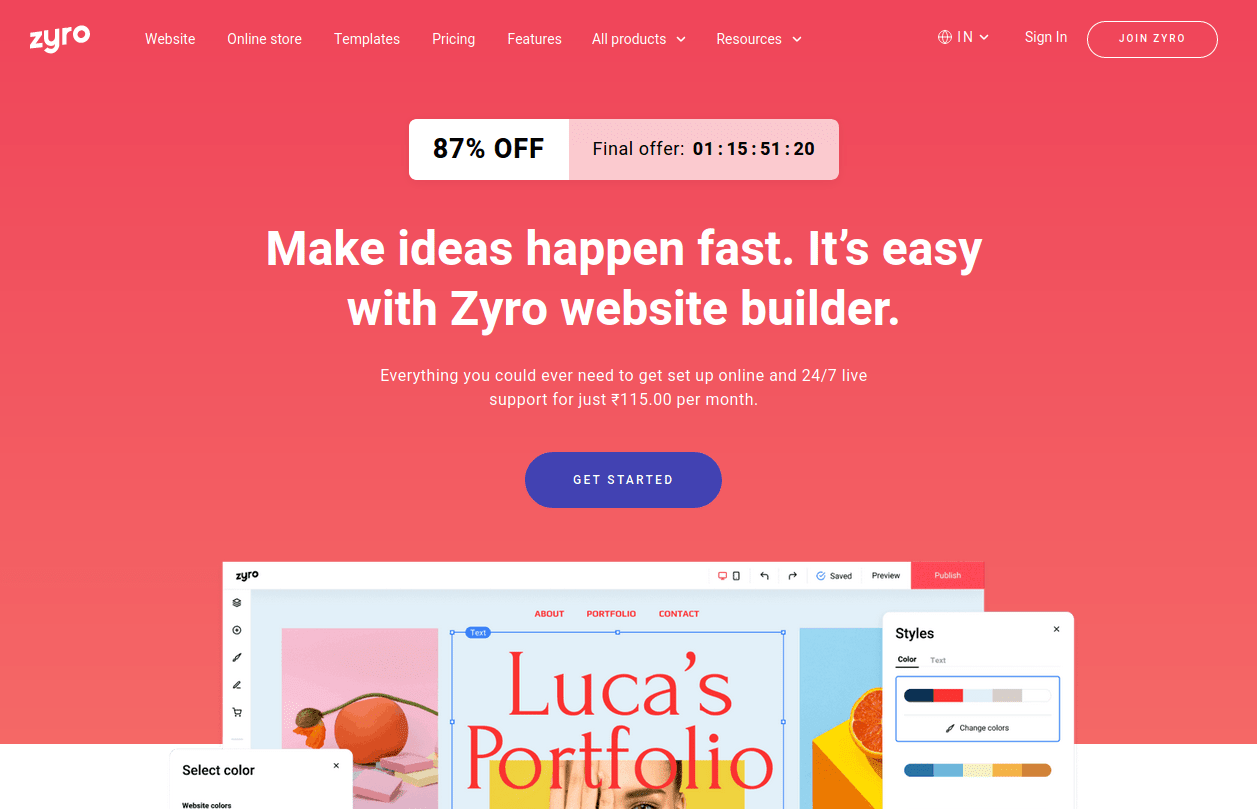
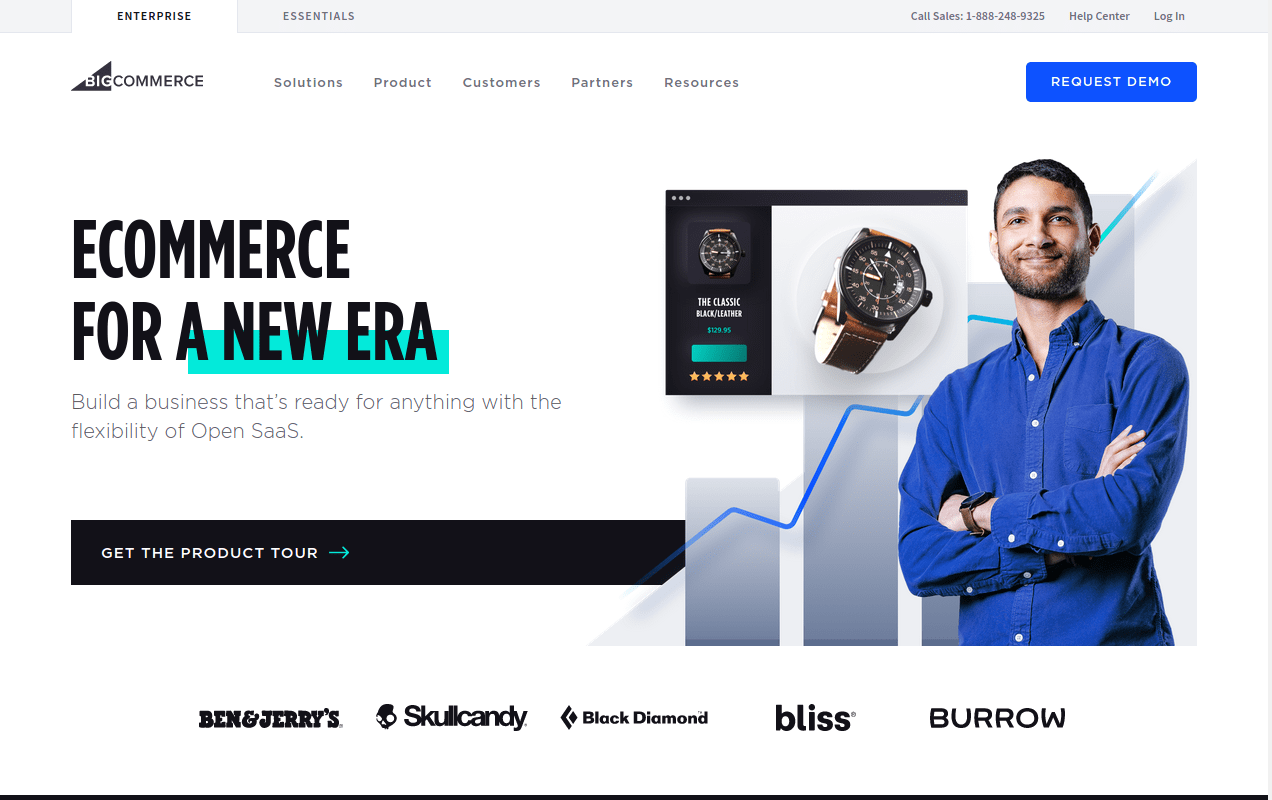
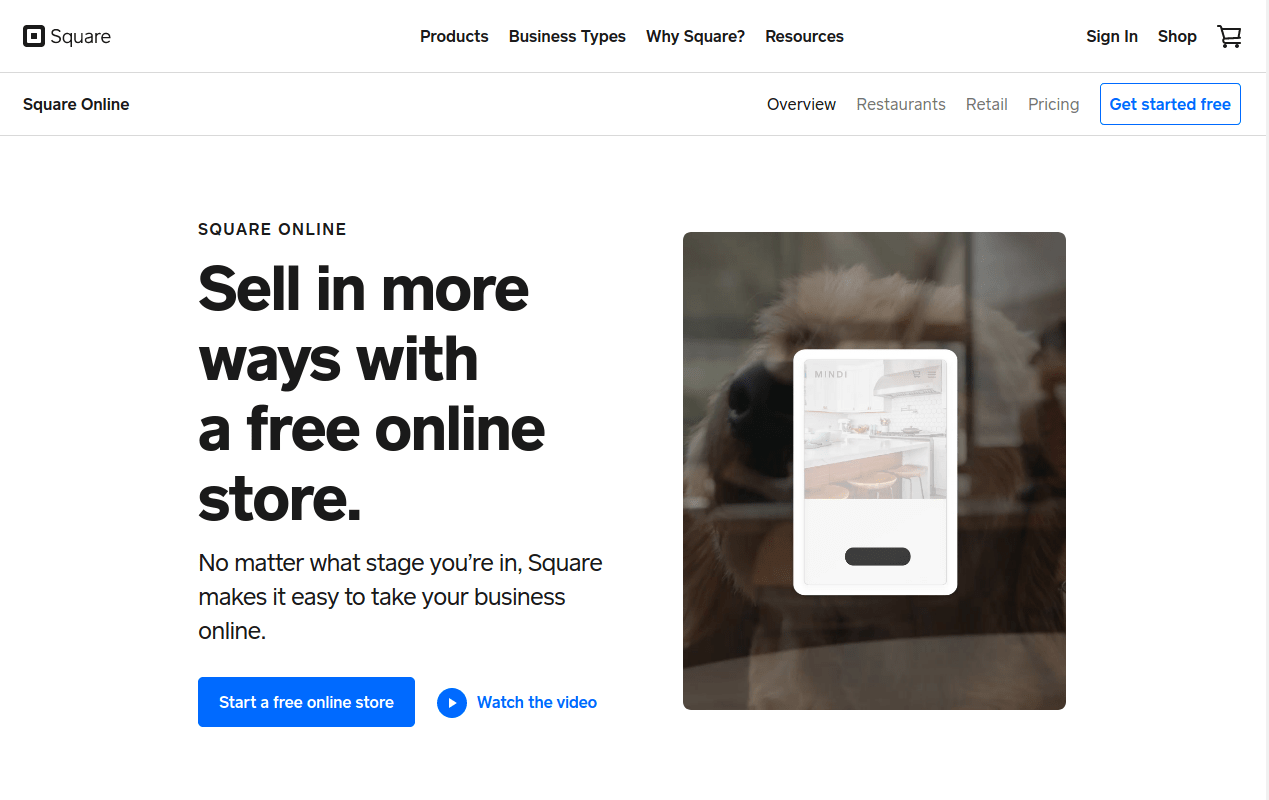
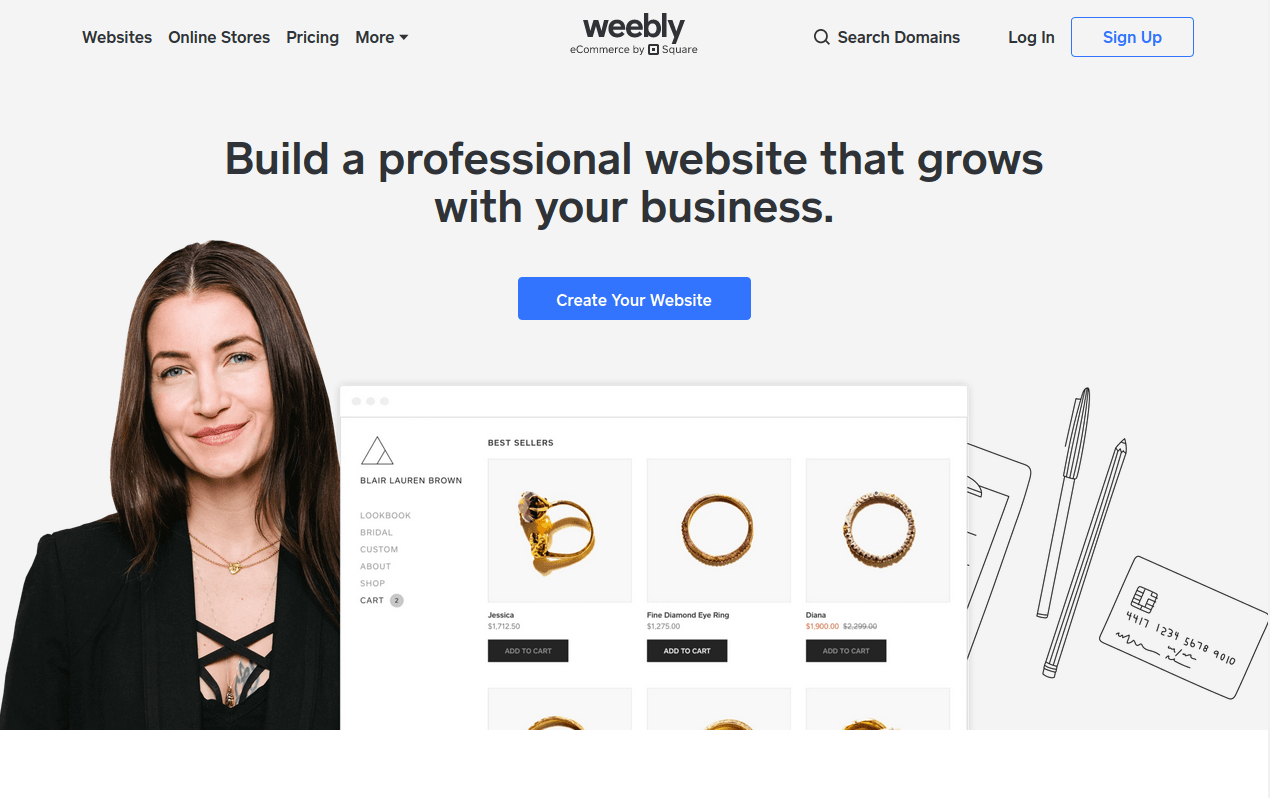
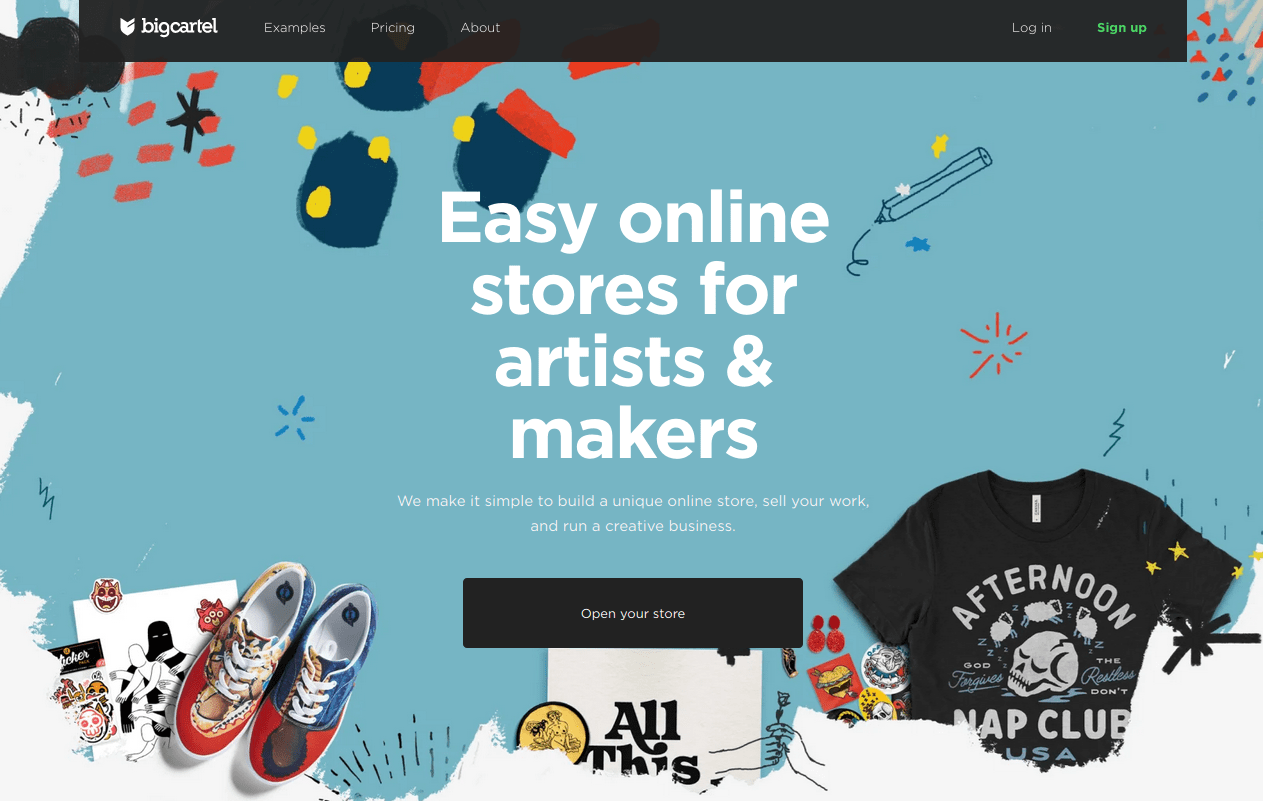

Leave a Reply